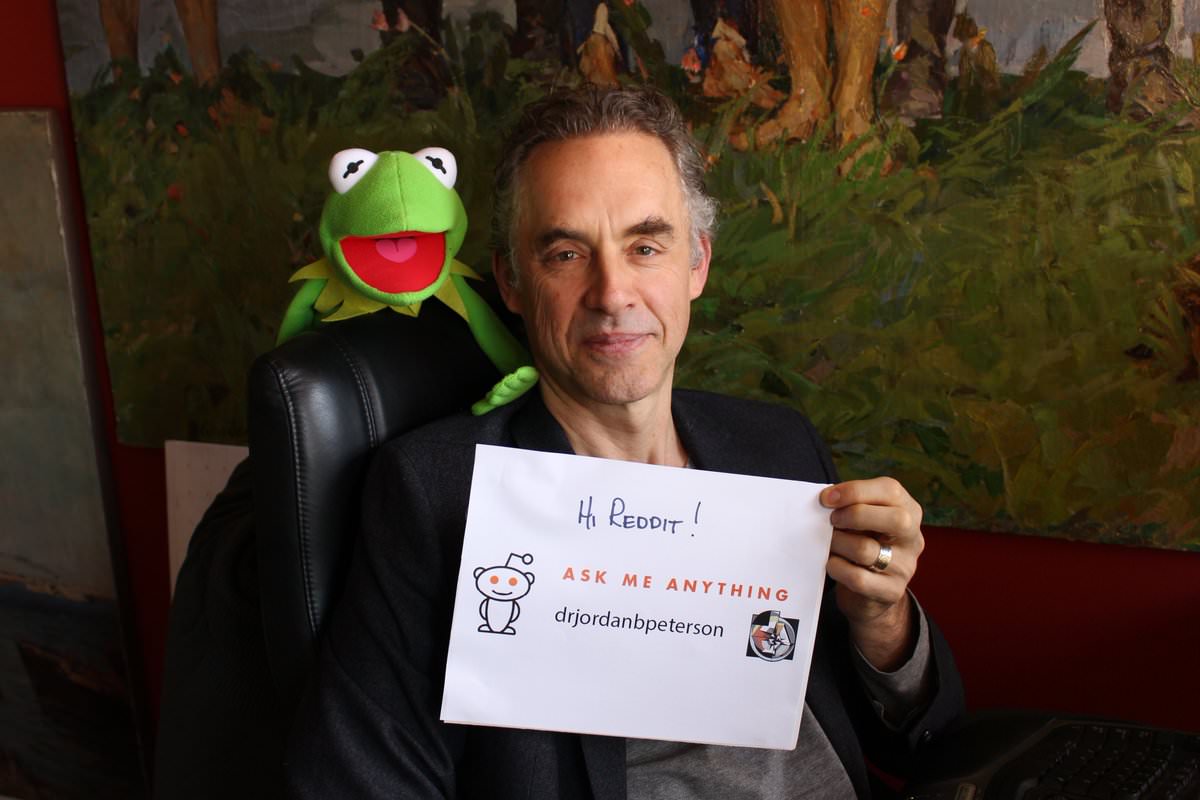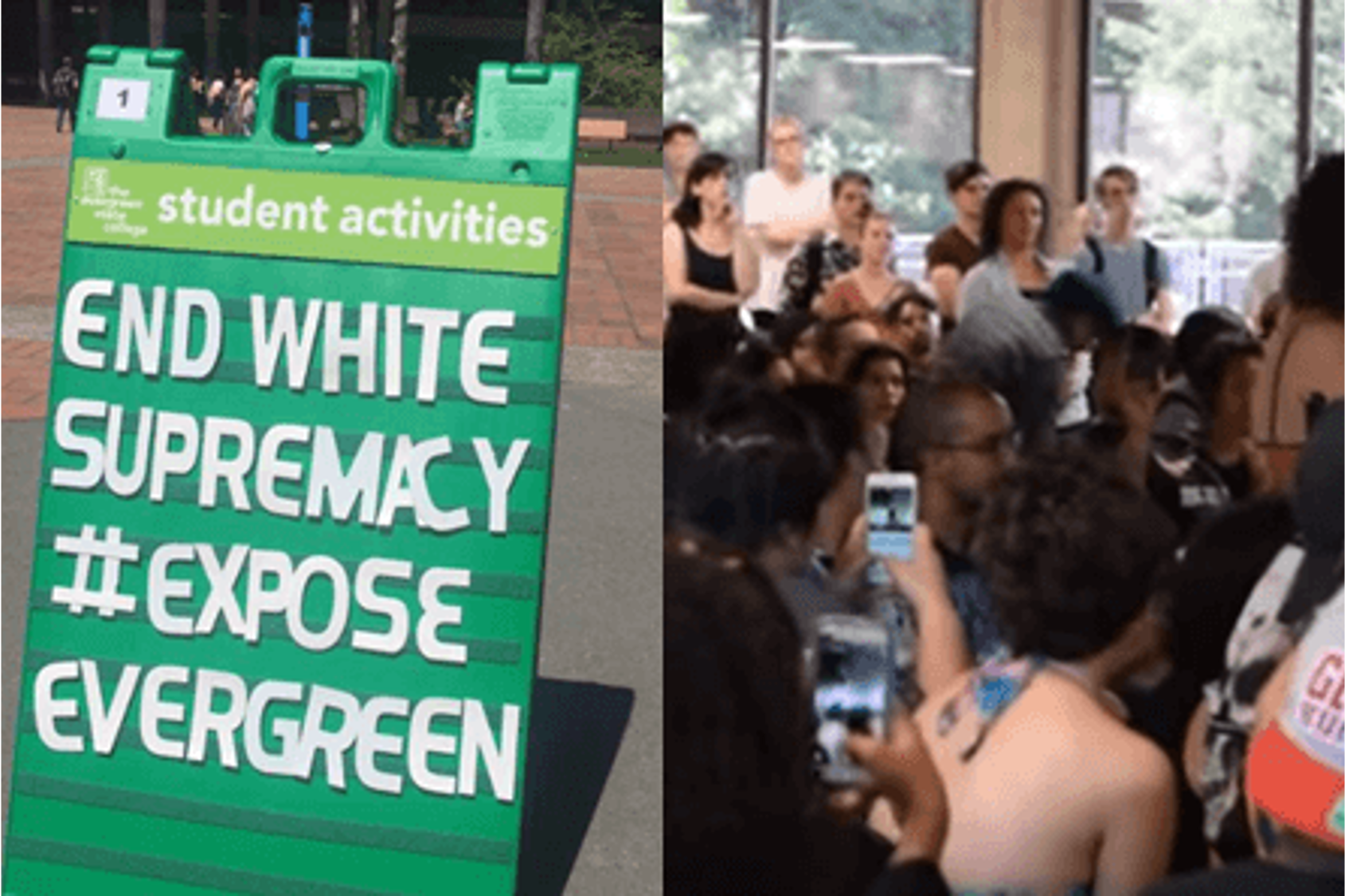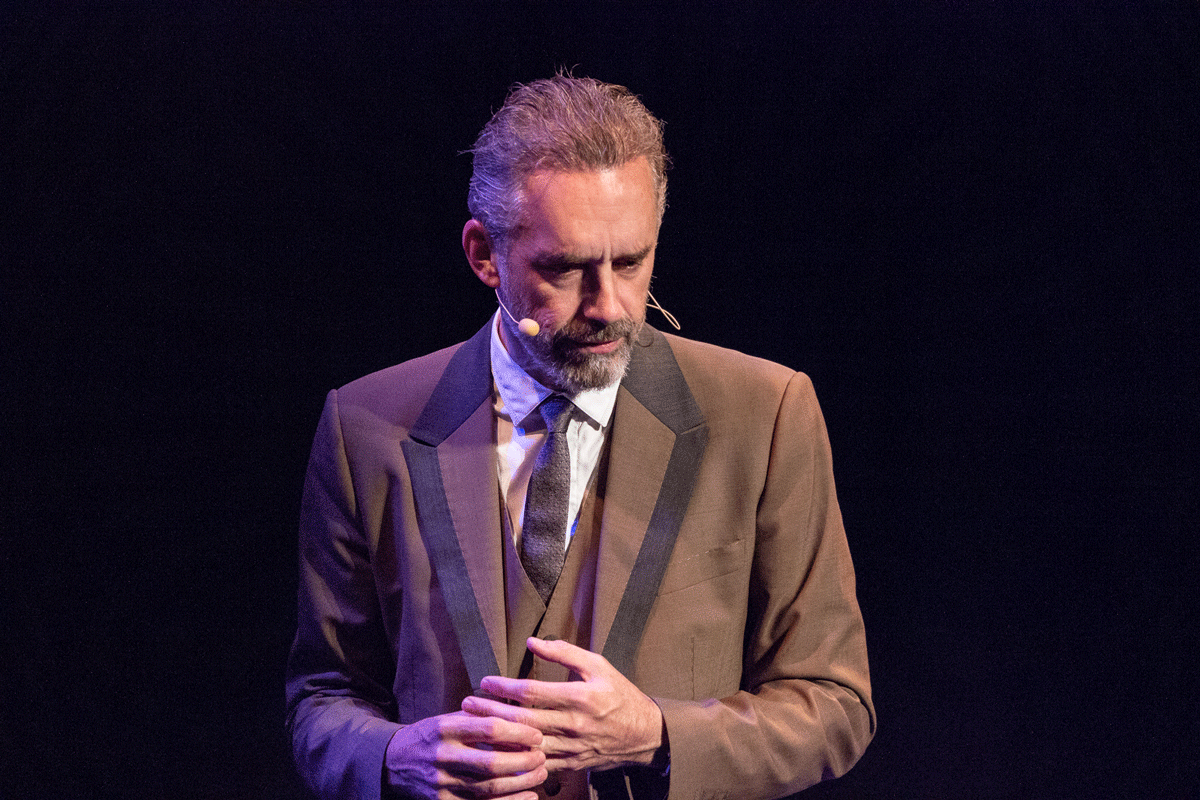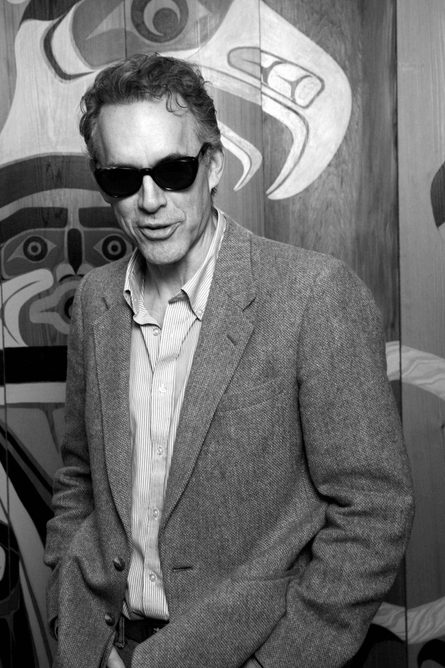Art and Culture
Who's Afraid Of Jordan Peterson?
He counsels them to face the fact that life entails much suffering, and that inner and interpersonal conflict are inevitable – not the kind of thing most “satisfied customers” want to hear.

Michael Aaron’s article of June 8th, “Evergreen State and the Battle for Modernity” wasted no time honing in on the central problem driving the current climate on many of university campuses – the conflict between modernism and postmodernism, and the beliefs, attitudes and behavior that they spawn (among faculty and students alike.) My only complaint with Aaron’s article is that he only lists instances of on-campus shenanigans in the United States. Meanwhile, to the North, similar events and debates are unfolding, causing national newspapers – The Globe and Mail and The National Post – to take note.
I know I've tweeted this article 3 times now, but this is the most important thing I've read in 2017. https://t.co/u3KCQ7lQpM
— Tommy (@tciccotta) June 12, 2017
At the center of many of these campus controversies is Jordan Peterson, a clinical psychologist and Professor of Psychology at the University of Toronto, whose outspoken views on Marxism, postmodernism, and the use of gendered pronouns in the classroom have provoked the ire of many social justice warriors across Canada. Indeed, his ideas have been labelled “hate speech” by many who do not share his views, and – depending on who you talk to – he may be in danger of losing his job. Meanwhile, activists’ efforts to silence Professor Peterson, or to disrupt his on-campus talks – by incessant heckling, the use of bull horns and air sirens, etc. – are worrisome and reprehensible.
Transphobia kills:This is a Transphobe.National Gallery of Canada urged to cancel Jordan Peterson https://t.co/gXtP3eOApR #onpoli #cdnpoli
— Cheri DiNovo (@CheriDiNovo) March 3, 2017
Why? The primary motivation for the demonization, dismissal, and harassment of Professor Peterson appears to be fear, plain and simple. People who conduct themselves in this fashion feel menaced when the validity of their own perspective is challenged, and cannot – or will not – muster cogent arguments in their defense, abandoning basic norms of civil discourse. Beyond that, their actions betray a fundamental unwillingness to simply engage with him and his ideas in the spirit of genuine, respectful dialogue. If these kinds of bullying tactics escalate or continue unchecked, they pose a threat to freedom of speech, and by implication, to academic freedom in Canadian universities.
Before we say more about freedom of speech on campus, what is the prevailing ideology in the humanities and social sciences? According to Professor Peterson, it is an insidious blend of Marxism, feminism, and postmodernism. In several of his recorded lectures, broadcasts, and interviews, Professor Peterson even claims that postmodernism is merely the latest incarnation of Marxism – a claim that would surprise and offend many postmodernists, and indeed, many Marxists, too. Rightly or wrongly, most Marxists subscribe to a materialist epistemology that postmodernists reject unequivocally as obsolete and reductionist. And by contrast with Marxists, who stress the formative role of labor in the ontology of social relations, postmodernists stress the primacy of language as the key to understanding human culture and development.

Moreover, with rare exceptions, postmodernists are wary or dismissive of any concept of human nature. By contrast, Marx claimed that “man makes himself in the process of his own history,” i.e. that human nature is formed and transformed through collective human agency or praxis over the course of time. Moreover, rightly or wrongly, most Marxists believe that human history and the development of human culture have a built-in telos, or goal – the eventual creation of a classless society. Postmodernists make no such claims, and tend to regard the very notion of progress (or any kind of telos in history) as nothing more than an urban myth.
But if postmodernism is not an outgrowth of Marxism, as Peterson claims, then what is it? Strictly speaking, postmodernism is merely one of many trends in Continental philosophy that migrated to our shores in the late 1970s and 1980s, including structuralism and post-structuralism, deconstructionism, and Lacanian psychoanalysis. Nevertheless, rightly or wrongly, all of these theoretical approaches are subsumed under the label of “postmodernism” nowadays. And though different, in some ways, they do share some common characteristics.
Unlike modernism, with its characteristic emphasis on selfhood, singularity, authenticity, and personal agency – modernist themes which are still very dear to Professor Peterson’s heart – postmodern thinkers emphasize the social construction and social embeddedness of all individual identities, and the role of difference and “otherization”, which render the experience of the other opaque, or incommunicable to those who do not share their (culturally and linguistically constructed) window on the world. And whereas modernism is committed to some notion of objective truth, postmodern thinkers frequently question the existence of any truth-claim free of an underlying ideological coloration or agenda. It also questions or deconstructs all “grand” or “master narratives” that attempt to impart a sense of coherence to the world, to experience, or even to a literary text by stressing the ambiguities of language, and the elements of radical contingency, heterogeneity, and discontinuity that characterize human existence.
During the last quarter of the 20th century, academics and students embraced postmodernism with considerable fervor, prompting some conservative commentators to suggest that the precipitous decline of the Liberal Arts (in terms of enrollment and power) in recent decades is linked to the ascendancy of postmodern theory. In an article in The Atlantic Monthly entitled “The Truth About Harvard,” Ross Douthat, a well known conservative columnist, even suggested that the popularity of postmodernism in the Liberal Arts was abetted by a species of scholarly ressentiment, an unwitting “inferiority complex” that seeks “to justify academic life in the face of the fantastic accumulation of wealth that takes place outside the ivory tower.” Douthat described postmodernism as a misguided attempt to match the rigor of the natural sciences in domains that resist such regimentation, or succumb to it only by collapsing into sterile and self-serving arguments that only highly trained specialists can appreciate or understand. He openly deplored the:
. . . decades-long wade in the marshes of postmodern academic theory, where canons are scorned, books exist only as texts to be deconstructed, and willfully obscure writing is championed over accessible prose. All this has merely reinforced capitalism’s insistence that the sciences are the only important academic pursuits, because only they provide tangible, quantifiable (and potentially profitable) results. Far from making the humanities scientific, postmodernism has made them irrelevant.
No doubt, some will cringe at the sweeping severity of this dismissal. But they would be foolish to ignore it completely. The fact that the rise of postmodernism and the decline of the Liberal Arts coincide in time cannot be pure coincidence. Of course, there are other powerful cultural and economic forces that have contributed mightily to the decline of the humanities and social sciences, and the galloping enfeeblement of our dwindling professoriate – neoliberalism and consumerism chief among them. Douthat (and other conservative commentators) tend to ignore these.
Why does this matter? Well, talk of strange bed-fellows, but consumerism and postmodernism often join forces in unexpected ways. For example, in the postmodern lexicon, words like “reason”, “autonomy”, and “personal responsibility” do not denote normative ideals worth striving for, even in the context of post-secondary education. For many fashionable and avant garde thinkers (and their followers), these are merely weasel words, ripe for deconstruction – sliding signifiers that are invoked in an inconsistent and/or opportunistic fashion to legitimate a normative standard or set of social relations that is hopelessly dated or repressive.

This kind of word-play gains a lot of traction in a consumer society, where actively engaged citizens have gradually given way to passive consumers – young people who view education as a kind of intangible commodity that they (or their parents) purchase to increase their future earning power, rather than a demanding process of acquiring (or imparting) wisdom, or deepening their powers of judgment and ethical decision. On the contrary, many students prefer to remain eternal sucklings. They long to be soothed and entertained while they are learning. They loathe hard work and are afraid to be deeply, fundamentally challenged by ideas and perspectives outside their “comfort zones”, whether these “comfort zones” are politically correct, on the one hand, or politically conservative, on the other.
The cumulative impact of this unholy alliance is impossible to quantify, but it is a factor to be reckoned with, because the logic of the market place has thoroughly debased the theory and practice of university life. As a result, administrations nowadays often treat students as their customers, and treat tenured professors as service workers, who are expected to present their customers with a package of “goods” designed to their needs and specifications. And if the customers’ needs and specifications require professors to set aside our own standards and personal convictions – well, so be it. The customer is always right – no?
As a result, in the context of the postmodern university, students can often decide the fate of an unpopular professor. So, if transgender or gender-fluid students wish to be addressed with newly minted pronouns such as “zer”, “zee” or “zem” (among many, many others currently being mooted), or to change their pronouns of choice whenever they feel like it, it is up to us professors to accommodate their wishes. The reason offered for this demand is that we have a collective obligation to address, and as far as possible, to mitigate or erase, the discrimination such students face, and that we professors have an obligation to be constantly mindful of their feelings of victimization.
This sounds good, on the face of it. But in acceding to such demands, we are also constraining freedom of speech and diminishing political diversity in the Liberal Arts and Social Sciences, by rendering our campuses completely inhospitable to conservatives, a process which both reflects and reinforces the political polarization that is paralyzing our political systems, and empowering extremists on both sides of the political spectrum to avoid genuine dialogue, and inhabit their respective “echo chambers.”

Professor Peterson’s case is notable because he simply won’t bend to these pressures. Instead, he confronts them head on, preaching a gospel of life-long self-development (or self-authorship), personal transformation, and individual responsibility that stands in marked contrast to both the postmodern and marketing/consumerist sensibilities that prevail on contemporary campuses. He is an unusual guru. He counsels them to face the fact that life entails much suffering, and that inner and interpersonal conflict are inevitable – not the kind of thing most “satisfied customers” want to hear. He urges millennials to aspire to “the good” (which he defines in a quasi-Platonic fashion), and to change themselves before they seek to change the world, and to recover and renew, rather than reject, the traditions of their fathers.
Much as I admire his moral courage, it is instructive to note that mothers don’t play a big role in Professor Peterson’s concept of “cultural traditions,” or in the mythic motifs and literary figures he celebrates in his books and talks, which are all available on YouTube. Indeed, in one lecture, Professor Peterson provides his millennial admirers with his own personal pantheon, telling them that they must read Dostoyevsky, Tolstoy, J.S. Mill, Nietzsche, Orwell, Huxley, and Solhzenitsyn if they wish to avoid becoming mere puppets to prevailing trends in academia. Now, there is nothing wrong with any of these recommended writers. But apparently, there are no female thinkers of comparable stature who are required reading for aspiring Petersonians. Here, and elsewhere, Peterson conveys the distinct the impression that, like a latter day Socrates, he is much more interested in engaging with young men, rather than young women. Indeed, young men comprise the majority of his vast (and growing) online following.
Now, one unfortunate feature of Peterson’s pitch to young people is that he promotes his attitudes and ideas as an antidote to “ideology.” Ideology is a dirty word in his vocabulary, which denotes a lack of judgment, autonomy, and commitment to truth. But a moment’s reflection discloses that most of his ideas and arguments – self-authorship and self-transformation, as opposed to social change, reviving rather than rejecting our father’s ideals, etc. – are actually rooted in conservative ideology.
In so saying, I am not using the word “ideology” in the same pejorative way that Peterson typically does. On the contrary, I am using it to denote a (relatively) cohesive pattern of values and attitudes that shape a person’s sense of identity and perspectives on society. And when I say that Peterson is conservative, I do not mean that he embraces the mean-spirited, exclusionary or egregiously selfish conservatism of American fundamentalists or free market enthusiasts, who proclaim – against all the evidence and plain common sense – that unfettered capitalism and Christianity are intrinsically compatible, if not two sides of the same coin.
No, though he does get much support from people like these, the conservative ideology in which Peterson’s pedagogy is rooted is the old fashioned, humane conservatism of Europe before the Great War, which fostered a culture of scholarship and artistic excellence embodied, for example, in the life and work of Peterson’s favorite psychologist, Carl Jung (1875-1961). Yet sadly, for all his erudition and astonishing artistic creativity, Carl Jung did not just embody the positive features of the older, European-style conservatism, but its negative features as well. As most contemporary Jungians (and “post-Jungians”) freely concede nowadays, on the “shadow” side of Jung’s psychology are racist and sexist attitudes that ran miles deep, and did considerable damage in their day. Reading Jung’s collected works – as Peterson has – won’t necessarily alert you to these problems or defects.
Another intriguing oddity, on reflection, is Peterson’s simultaneous reliance on English philosopher John Stuart Mill (1806-1873) and his younger German contemporary Friederich Nietzsche (1844-1900). Why? Though Peterson studiously ignores this issue, Nietzsche was a fierce and outspoken apologist and advocate for slavery, while Mill was opposed to slavery with equal fervor. (Without mentioning him by name, Nietzsche’s introduction to The Genealogy of Morals offers a scathing critique of Mill and other unnamed “English psychologists” for his utilitarianism and his a-historical approach to social psychology.) While I don’t share his utilitarian philosophy, I deeply admire Mill’s opposition to slavery and his passionate defense of free speech. Mill’s writings on this score are absolutely central to the defense of civil liberties and academic freedom, prompting the reflection that the activists who disrupt Professor Peterson’s public talks are either ignorant of or indifferent to Mill’s ideas, or are just extremely illiberal, and intolerant of opposing points of view.
In addition to these striking contradictions, Peterson conveniently ignores the fact that Nietzsche, rather than Marx, was the founding father of postmodernism. Indeed, Foucault, Derrida, Judith Butler and many other postmodern notables all sing Nietzsche’s praises, and quote or paraphrase him frequently. To put all this in context, please remember that one of the striking things about the Western intellectual tradition is the way that religion and science typically converge in their conviction that “the truth shall make you free.” Of course, religion and science also diverge mightily in how they define truth, and the methods that they recommend for ascertaining it. But the fact remains that up until very recently, we considered one of the hallmarks of a good education, scientific or religious, to be a truth-loving (or truth-seeking) disposition.
Nowadays? Well, no, not so much. The educational goal of fostering a truth-loving and truth seeking disposition – which is central to Peterson’s pedagogy – has been called into question by postmodernism, and the grandfather of all the recent “isms” that “problematize” or deny the existence of truth was none other than Friederich Nietzsche. Toward the end of his first book, The Birth of Tragedy, Nietzsche invoked the Kant’s critical philosophy and Schopenhauer’s florid irrationalism in an effort to discredit modern science completely. And later, in The Genealogy of Morals (section 24), Nietzsche took this line of argument further, citing the medieval Muslim Society of Assassins, whose motto was: “Nothing is true; everything is permitted.” Nietzsche obviously thought that the assassins’ creed was quite profound, because he then went on to say. “Here we have real freedom, for the notion of truth itself has been disposed of.”
Here, then, was a radical departure in the history of Western thought. Prior to this point, most philosophers, scientists and educators believed in the emancipatory power of truth; the idea that truth, once grasped fully, can liberate us from the shackles or ignorance and oppression. The flip-side of that belief, of course, is that lies and illusions – what Peterson calls “ideology” – enslave us, because they clutter or obstruct our vision, and must be cleared away before we can live and act in accordance with the truth. That is certainly Peterson’s view. But Nietzsche described truth, or more precisely, the “notion of truth” as an obstacle to freedom, rather than its vital pre-condition. Indeed, Nietzsche used his critique of science – which foreshadows postmodern obscurantism on this subject – to underwrite an ethical relativism which declares, in effect, that “anything goes.” Obviously, this too runs directly contrary to Peterson’s pedagogical ethos, which stresses the need for self-discipline and the diminution of unnecessary human suffering.
What is the upshot of this analysis? Well, several things spring to mind. Borrowing from Jonathan Haidt, Peterson tells his audiences that universities can have only one telos, and that ultimately, they must choose between a “social justice university” and a “truth university” – the former being devoted to the pursuit of social justice, the latter to the (more traditional) goal of seeking truth. And on reflection, no doubt, Nietzsche would consider a “social justice university” to be an abomination. Given the opportunity, he would probably re-cycle his arguments from The Genealogy of Morals, and argue that beneath all their rhetoric about equality, social justice warriors are really motivated by rancor; a vindictive tendency to devalue or demonize others who are more powerful, privileged, and accomplished than themselves, and a need to invent new vocabularies and hone new rhetorical strategies to achieve their collectivist goals – all at the expense of the aristocrat, the rugged individualist, who would become an outcast in their midst.
But would Nietzsche have supported a “truth university”? Only if he were as inconsistent as Peterson himself. Consider – if “nothing is true”, and the notion of truth is an obstacle to freedom, rather than its necessary precondition how can a “truth university” possibly flourish without extensive reliance on deception, self-deception, and plenty of false advertising? If you take him at his word, both of Haidt’s models of the university are equally untenable, from a Nietzschean perspective.
With that said, Haidt’s arguments, while persuasive, up to a point, really present us with a false dichotomy. Granted, as Peterson points out, the belief that we should devote ourselves to the disinterested pursuit of truth is codified in the mottos, emblems, and insignia of many venerable universities. And yes, we should honor these traditions and values, postmodernism notwithstanding. But it is also true that these mottos were first articulated and embraced when many of these universities were bastions of white male privilege. Indeed, many were involved in the slave trade and disqualified women from getting a post-secondary education. These deeply discriminatory practices were justified by invoking some patent untruths – namely, the fiercely held beliefs that non-whites and women are intellectually inferior to white men, or somehow unsuited or undeserving of a university education.
Fickle and flawed as they may be, universities nowadays are much, much better and more inclusive places than they were in John Stuart Mill’s day. And why are they better? Because “social justice warriors” of bygone days challenged the untruths that riddled these ostensibly truth-loving universities, and which were used to rationalize and justify blatantly discriminatory practices. Moreover, it is worth noting here that Mill, the passionate defender of freedom of speech, was not only opposed to slavery, but was arguably the first male feminist. (Peterson, by contrast regards male feminists with suspicion and contempt.) When you reflect on Mill’s life and example, and the ways in which universities have changed for the better since his time, it dawns on you that the attempt to force a choice between a “social justice university” and a “truth university” is untenable, in the long run. In order for universities to be viable, we need to uphold and embrace both models of university life, recognizing all the while that the values that they represent will always exist in a state of dynamic tension with one another, and will often come into conflict as a result.
Meanwhile, concerted effort to hound conservatives out of the humanities and social sciences, thereby reducing political diversity on our campuses, is not the way forward, and not the way to manage or negotiate the conflicts that will inevitably arise as we try to balance our loyalties to these two laudable ideals. On the contrary, this kind of collective performance, repeated often enough, will only deepen the culture wars that threaten to tear our culture completely apart. Moreover, as Bret Weinstein’s case illustrates all to clearly, it is only a matter of time before the mob turns its wrath on progressives who stick to the modernist world view.
So, to any and all professors who cheer the more extreme student activists on I say, not only is it unfair, unreasonable, and deeply disrespectful to carry on this way. It is not even in our own best interest to do so, because conflicts like these afford men like Peterson the opportunities to pose as martyrs or culture heroes, providing ammunition for right-wing cultural warriors – like Margaret Thatcher and Donald Trump, for example – who will use their political capital to hobble and shrink the humanities and social sciences even further. In other words, if we tolerate or encourage this kind of nonsense, we are really digging our own graves.
While many of his ideas and assertions are not new, or even consistent with a closer reading of the texts and thinkers he praises for their courage (or blames for our ills), Professor Peterson’s ideas and attitudes are not so far beyond the pale that they justify the shabby treatment he’s received at the University of Toronto or McMaster University in nearby Hamilton, Ontario. If students find his attitudes and opinions worrisome or offensive, let them learn to tolerate their own discomfort better, and engage with Professor Peterson (and others like him) in civil discourse, rather than rants and abuse.






